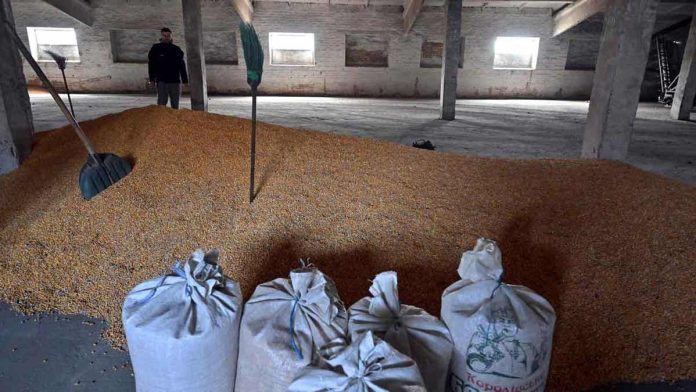Bulgaria has insisted on imposing tariffs and quotas on imports of Ukrainian grain into the EU, claiming significant losses for local farmers after the EU lifted trade restrictions on Ukrainian products following the outbreak of war in Ukraine.
Last week, Slovakia, Bulgaria, Romania and Poland said in a joint letter to EU Trade Commissioner Valdis Dombrovskis and EU Agriculture Commissioner Janusz Wojciechowski that their farmers were “suffering significantly” after the EU lifted import quotas and duties on Ukrainian grain imports.
Bulgaria’s agriculture ministry admitted that there had been no analysis of how the imposition of tariff quotas and duties would affect Bulgarian production such as oil, which uses Ukrainian products, and the country had no clear idea whether the imposition of duties would lead to higher inflation.
Bulgaria has met all the requirements, but the country’s inflation rate (4.7 per cent) is still higher than in other EU countries. Bulgaria also has large production capacities for refined and unrefined sunflower oil and biodiesel, and Bulgarian producers in these sectors are among the largest in the EU. At the same time, Bulgaria does not produce enough sunflower seeds for its capacity and is heavily dependent on imports from Ukraine.
The imposition of tariffs on Ukrainian sunflower and rapeseed seeds could make Bulgarian products unsuitable for sale on world markets. Last year, while the ban on imports of Ukrainian grain was in force, some production facilities were closed. The Bulgarian Agriculture Ministry said:
Regarding the Ukrainian production used as raw material, it should be noted that the difference in cost and supply with the production of Bulgarian producers is due to the mandatory compliance with several “green standards” in the EU, which is not required for producers outside the EU.
Last spring, the issue of the quality of Ukrainian grain was already raised when Bulgarian sanitary authorities said the products were completely safe and the average oil content of sunflower seeds from Ukraine was higher than that of Bulgarian sunflower seeds.
To satisfy Bulgarian grain, oil and livestock producers who depend on cheap imports, the government has proposed to the EU Commission to set “quota volumes” of duty-free imports, and if these volumes are exceeded, the Agriculture Ministry insists on paying duties on Ukrainian products.
The quota volumes should “correspond to the logic of the market and processing capacities, they should provide greater clarity and security for both producers and processors,” Bulgaria’s position reads.
At the same time, the Bulgarian Agriculture Ministry warned that such a situation could lead to a reduction in local production, which “in the long term could disrupt the country’s food security”.
